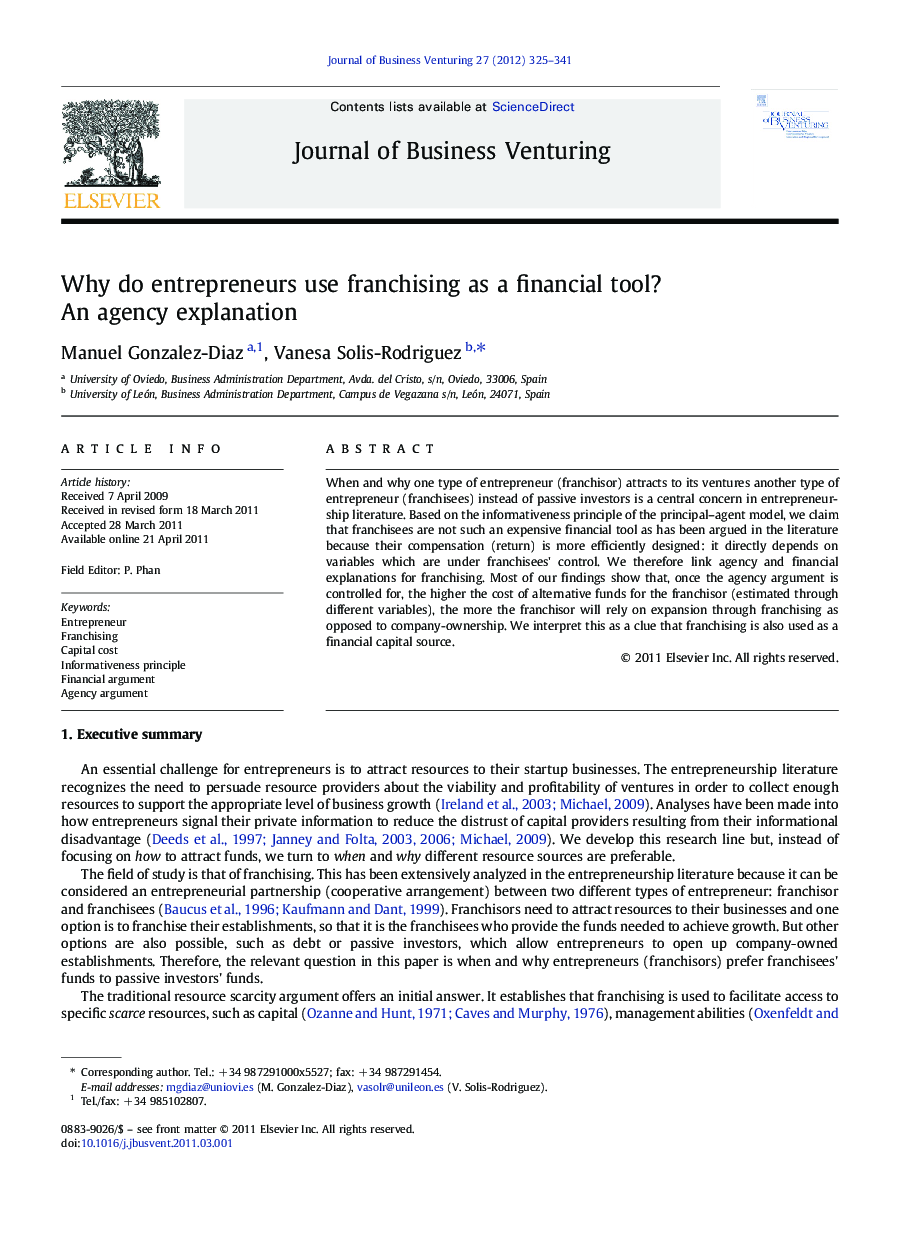| Article ID | Journal | Published Year | Pages | File Type |
|---|---|---|---|---|
| 1019631 | Journal of Business Venturing | 2012 | 17 Pages |
When and why one type of entrepreneur (franchisor) attracts to its ventures another type of entrepreneur (franchisees) instead of passive investors is a central concern in entrepreneurship literature. Based on the informativeness principle of the principal–agent model, we claim that franchisees are not such an expensive financial tool as has been argued in the literature because their compensation (return) is more efficiently designed: it directly depends on variables which are under franchisees' control. We therefore link agency and financial explanations for franchising. Most of our findings show that, once the agency argument is controlled for, the higher the cost of alternative funds for the franchisor (estimated through different variables), the more the franchisor will rely on expansion through franchising as opposed to company-ownership. We interpret this as a clue that franchising is also used as a financial capital source.
Research highlights► Why do franchisees demand lower return as compensation for their funds? ► The Informativeness principle explains it: franchisees have greater business control. ► The higher the cost of alternative funds, the more the intensity of franchising. ► This is a clue that franchising is also used as a financial capital source.
